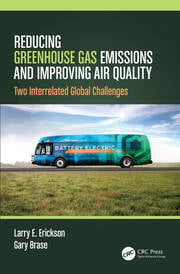ABSTRACT
The electrification of transportation is a key development for society because of its impact on reducing greenhouse gas emissions and improving air quality. The economic appeal of electric vehicles has continuously increased with the rapid decline in battery prices over the past several years, with average prices of less than $200/kWh in 2018, and projected future prices of less than $50/kWh. With reduced battery prices, electric cars and electric bikes will become attractive options for those looking for inexpensive transportation. In 2018, the number of EVs in service (cars, buses, and trucks) increased to more than 5 million, with a large fraction of these being in China. There were more than 100 million electric bicycles in service in 2018, with more than 60% of these being in China. Electric buses have significant air quality benefits which have helped to justify their purchase in China, in California, and in major cities like London and elsewhere. Norway currently leads the world in this transition, with about 40% of new car sales being EVs in 2018. EVs that can be charged with renewable electricity also have the capability to store energy and provide benefits to grid operators and managers.


